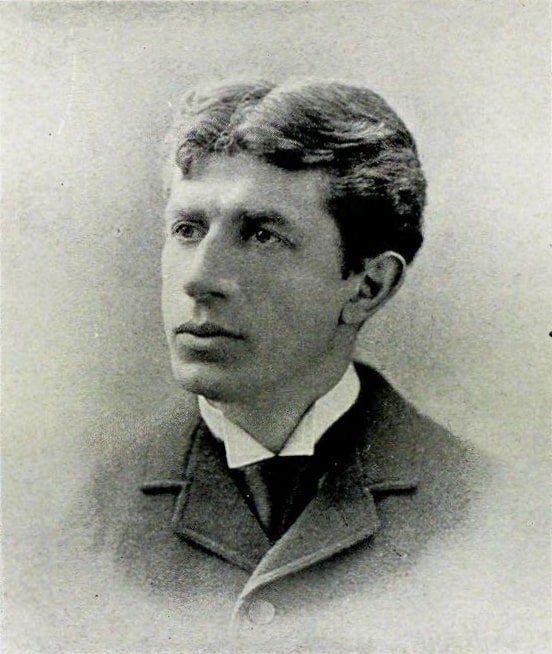
Francis Bellamy
“Would you get out paper and pen? I’m going to ask you some questions to begin class today.” So began Professor Ben Hopkins. “You might not know the name of Francis Bellamy, but all of you are familiar with something he wrote. Let me read what he wrote:
I pledge allegiance to my Flag, and to the Republic for which it stands, one Nation, indivisible, with liberty and justice for all.
“I’m sure you recognize this as the original Pledge of Allegiance. It’s been slightly modified and had one major change when “Under God” was added to the pledge. What I want to do is ask you some questions about Francis Bellamy and the pledge. I don’t expect you to know the answers. I just what to see how you think about the questions. Here they are:
- Who commissioned the writing of the pledge?
- What was Bellamy’s professional background?
- What was Bellamy’s political background?”
When the students finished answering the questions, Hopkins gave them more background on the pledge. “The pledge was commissioned by Daniel Ford, the owner of Youth’s Companion. He sold flags to schools as an enticement to subscribe to his publication. The pledge was commissioned as a way to get more flags into schools.”
“Francis Bellamy was a minister, but quit his ministerial profession to work for Ford in the promotions department. Bellamy was asked to write the pledge since Ford knew he had a knack for words. It took two hours to write the pledge.”
“Francis Bellamy was a Christian Socialist. He preached against the evils of capitalism. He also believed in the rights of workers and advocated for a more equitable distribution of wealth. He eventually left the church over the racism he saw in church memberships.”
“How did you do?” Hopkins asked. “My reason for starting class with this activity is to warn you against letting your perceptions control how you think about something. We often perceive things to be very different from the reality. That’s the result of associations we make from our past experiences. I suspect that many of you perceived that the pledge was commissioned by the government and that Bellamy was a speech writer with a strong patriotic background.”
“In our class discussions, I want you to be conscious to manage your perceptions. Be careful to only state things as facts when you know them to be factually correct. When a statement is based upon perceptions, use phrases such as ‘seems to be,’ ‘might be,’ or ‘possibly.’
“Faulty perceptions often lead to disastrous conclusions or directions. Just imagine all of the false remedies that have resulted from false perceptions. False perceptions can often become the justification for intolerable behavior. Unfortunately our tendencies to develop false perceptions are enhanced today by social media.”
* * *
“Most of the mistakes in thinking are inadequacies of perception rather than mistakes of logic” – Edward DeBono (physician and author)
This post is part of our “Think About” education series. These posts are based on composites of real-world experiences, with some details changed for the sake of anonymity. New posts appear Wednesday afternoons.


